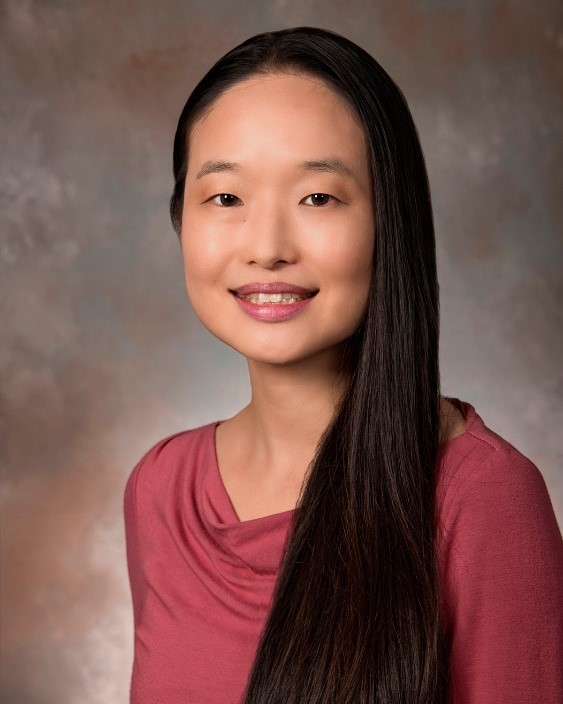JHSPH Alumni Profiles
Dr. Su Yeon Lee-Tauler, PhD
 Dr. Su Yeon Lee-Tauler graduated from The Bloomberg School of Public Health Department of Mental Health. Before starting at Hopkins, Dr. Lee-Tauler received a BA in Public Mental Health and Cultural Studies from Hampshire College. Her first job after college was as a Psychiatric Rehabilitation Therapist at the Johns Hopkins Bayview Medical Center. Since finishing her PhD, she has worked as a Scientific Program Lead at the National Institute of Mental Health (NIMH) and a Research Scientist at the Education Development Center. Currently, she is a Senior Research Scientist at the Uniformed Services University of the Health Sciences (USUHS) through the Henry M. Jackson Foundation for the Advancement of Military Medicine, where she works on military suicide prevention research. Dr. Lee-Tauler also is a Public Health Consultant for the Nathan Kline Institute for Psychiatric Research and co-facilitates the course “Mixed Methods in Mental Health Services Research” at Hopkins as an Associate at the Department of Mental Health.
Dr. Su Yeon Lee-Tauler graduated from The Bloomberg School of Public Health Department of Mental Health. Before starting at Hopkins, Dr. Lee-Tauler received a BA in Public Mental Health and Cultural Studies from Hampshire College. Her first job after college was as a Psychiatric Rehabilitation Therapist at the Johns Hopkins Bayview Medical Center. Since finishing her PhD, she has worked as a Scientific Program Lead at the National Institute of Mental Health (NIMH) and a Research Scientist at the Education Development Center. Currently, she is a Senior Research Scientist at the Uniformed Services University of the Health Sciences (USUHS) through the Henry M. Jackson Foundation for the Advancement of Military Medicine, where she works on military suicide prevention research. Dr. Lee-Tauler also is a Public Health Consultant for the Nathan Kline Institute for Psychiatric Research and co-facilitates the course “Mixed Methods in Mental Health Services Research” at Hopkins as an Associate at the Department of Mental Health.
I have been investigating suicide prevention needs among military chaplains, designing studies to test the effectiveness of suicide prevention curriculum as part of military training, refining data elements for military suicide death review, and providing support for various program evaluation and manuscript writing. I supervise research associates and mentor USUHS graduate students in the lab. This year, I begin to serve as a co-principal investigator for two newly funded projects with the goals of (1) improving mental fitness among Special Operation Forces service members and (2) providing peer support for military service members’ transition into civilian world.
Professionally, it was exciting to take my dissertation work on mental health disparities and apply it to understanding the trends and gaps in grants/contracts that seek to reduce disparities in mental health care. When I was in graduate school, my focus was primarily on Asian Americans’, particularly Korean Americans’, use of mental health services. At NIMH, I could see both domestic and global trends of mental health disparities and get a better sense of how governmental funding decisions happen based on the Institute’s strategic plans and scientific rigor of the applications. The biggest difference for my day-to-day life, personally, was to actually have free time in the evening and weekends for the most part. Not having the constant pressure of homework and papers was absolutely liberating! I used my newfound freedom for training for triathlon, taking aikido lessons, and reading books for leisure. I also found the time to date and get married during this time!
Receiving training in the breadths of mental health knowledge – e.g., prevalence, risk factors, etiology, prevention, and intervention of mental disorders – as well as methodological skills such – e.g., statistics, qualitative methods, systematic review – were useful right away. Having the experience of co-founding and leading a student group called the Behavioral Health International Group (BHIG) was tremendously helpful in the real world. Many of the colleagues and speakers we invited as part of BHIG became valuable partners at my job. I had wonderful mentors at JHSPH, including Drs. Hochang Benjamin Lee (now at University of Rochester), Joe Gallo (JHU), and Adam Spira (JHU) who believed in me and boosted my confidence in mental health research. I cannot thank them enough. What I learned on the job were more “soft skills” in professional communication with peers, superiors, and grantees and navigating the complex and transient system of the government.
When I was in graduate school, I set my mind on becoming a post-doctoral fellow and going down the traditional path of academia. However, one of the professors at the Department of Mental Health, Dr. Ramin Mojtabai, recommended me for a position at the Office for Research on Disparities and Global Mental Health. It sounded novel and rewarding, so I went for an interview without knowing fully what the job would entail. I chose the job, because I enjoyed talking with the Director of the office at the time, Dr. Pamela Y. Collins.
Understanding human behavior and choices and events leading up to suicide is such a complex task that I cannot pinpoint a single course or a work experience to prepare for this work. I think taking every opportunity to learn from people who are different from you and learning how to relate and communicate effectively with them is very valuable. For instance, I work with military service members and their families now, and though I haven’t had much exposure to military culture in the past, I consciously try to enter into their world and make friends. Once we start paying attention to others’ likes or dislikes, patterns in thinking, feelings, and behavior, we have the advantage of developing and tailoring mental health intervention/suicide prevention that is meaningful and impactful for them.
Flexible work hours and teleworking. Having the independence to create my own schedule is awesome. This is especially helpful as a new mom.
Some mental health researchers have “secret clearance” and those are only available for U.S. citizens. I think most companies find a way to sponsor visas for international scientists for case-by-case basis.
I am a huge proponent of finding part-time job, internship, fellowship, or volunteer experiences in the field you are interested. I tried many different summer internship or jobs to see if I would like that kind of work in a long run. Figuring out what does not work for you is just as, if not more, important than figuring out what does work for you.
Thank you again to Dr. Su Yeon Lee-Tauler for her time in conducting this informational interview.
This interview was conducted by Julie Nadel, PhD, in collaboration with the Professional Development and Careers Office at the Johns Hopkins School of Medicine.
